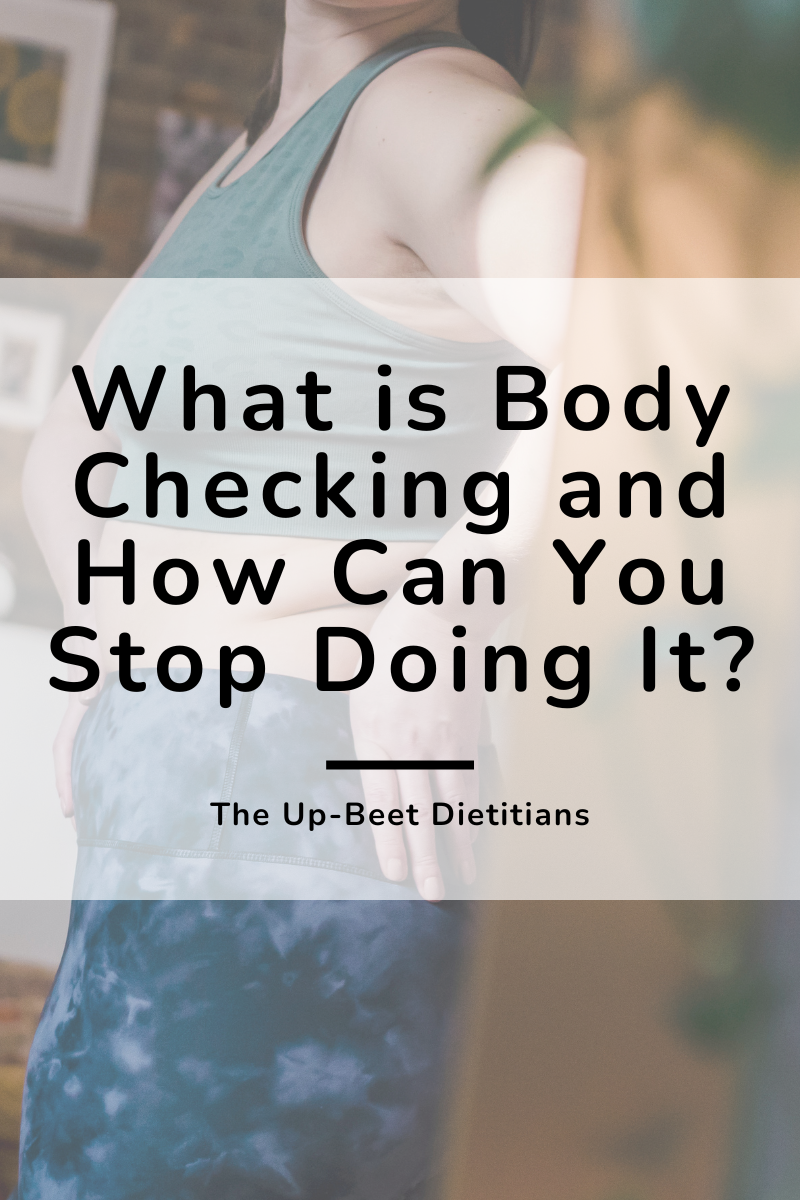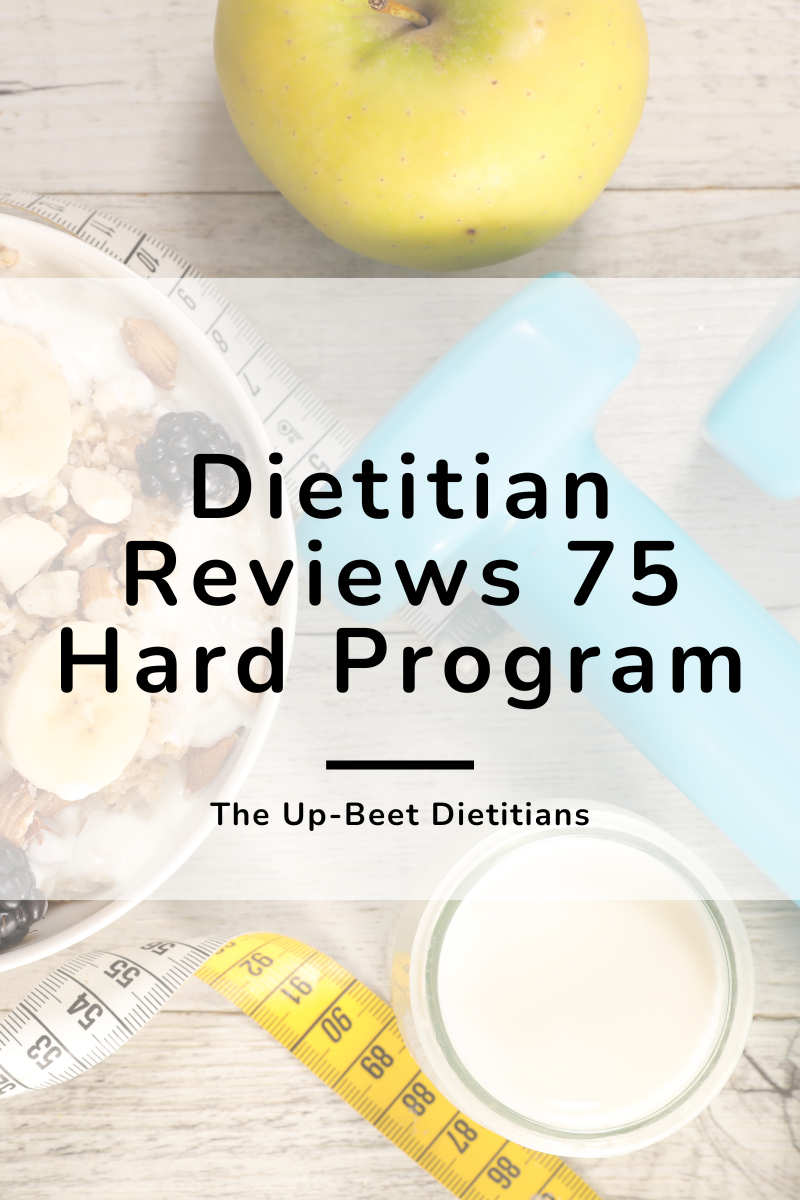The 10 Principles of Intuitive Eating - A Quick Guide from a Dietitian
Written by: Hannah Thompson, RDN, LD, CPT
How to Stop Dieting and Get Started with Intuitive Eating
Intuitive eating is a framework for a non-diet approach to eating that was created by two registered dietitians, Evelyn Tribole and Elyse Resch. There are 10 principles of Intuitive Eating that are explained within their book to guide you on working with your body’s innate hunger and fullness cues rather than working against them.
The 10 Principles of Intuitive Eating
1. Reject the Diet Mentality
Reject the idea of losing weight quickly, easily, and permanently.
Get angry at diet culture. You are not the reason that the diet failed. Diet culture is set up for you to fail. Diets don't work.
If you believe there may be a diet around the corner that will be "the one", it will prevent you from being free to rediscover Intuitive Eating.
2. Honor Your Hunger
You need to eat enough energy and carbohydrates. Otherwise, you can trigger a primal drive to overeat.
Don't let yourself get excessively hungry. All rationale and reason goes out the window at this point.
Listening to your hunger sets the stage for trust with your body.
Years of dieting may make it difficult to tune into your hunger and satisfaction cues. This takes time to relearn. It won’t happen overnight.
3. Make Peace with Food
Give yourself unconditional permission to eat.
This includes all foods.
Even if it isn't the "right time" to eat
If you tell yourself that you can’t have a certain food, it can lead to intense feelings of deprivation. This can lead to binging.
When you finally “give in” to your forbidden foods, you will likely feel the need to overeat them at first. This is called Last Supper eating. This won't last forever!
4. Challenge the Food Police
Give yourself EMOTIONAL permission to eat foods.
Shout "NO" to the voices in your head that say you are "good" for restricting your calories and "bad" for eating a cookie.
This also includes friends/family/co-workers that act as "food police". Do not let anyone make you feel bad for your food choices. Any judgment or disapproval that they portray is likely a reflection of their own relationship with food.
5. Discover the Satisfaction Factor
Food is more than just fuel! We need to eat for physical and emotional satisfaction.
Enjoying tasty food is part of the human experience and it is culturally intended to bring us together. Imagine connecting with others over a boring salad without dressing. Boo!
People often fear that if they allow themselves to eat pleasurable foods, they won't be able to stop. But really, allowing all foods will prevent overeating and binges.
6. Feel Your Fullness
We want to eat until we feel satisfied, not stuffed. This becomes difficult when:
We aren't sure when we aren't going to have that food again
We wait to eat until we are ravenous
You need to build trust that you will give yourself the foods that it wants.
Observe the signs that show that you’re comfortably full. Pause in the middle of eating and ask yourself how the food tastes, and what your current hunger level is.
7. Cope with Your Emotions with Kindness
First, recognize that food restriction, both physically and mentally, can trigger emotional eating.
Find other ways to cope with anxiety, anger, boredom, and loneliness.
It is normal to cope with food on occasion, but know that food won’t fix any of these feelings. It may comfort for the short term, distract from the pain, or even numb you. But food won’t solve the problem. You need to deal with the source of the emotion.
8. Respect Your Body
Accept your genetic blueprint. Even if everyone ate the exact same foods and moved their bodies the exact same way, we would still all look very different.
If your feet are a size 9, you don't expect them to fit into a size 6. Why don't we feel the same about our clothes?
BMI and ideal body weight exist, but there is truly no way to predict what your weight should be. When you are eating a balanced diet, moving regularly, managing stress, and sleeping well, your body weight will settle where it is meant to.
You are allowed to want to change the way your body looks. But you still need to respect your body. All bodies deserve dignity.
9. Movement—Feel the Difference
Don't exercise for punishment. Just get active, feel the difference, and find movement you enjoy.
Shift your focus to exercise in ways that feel good, not just to burn calories or lose weight.
If you focus on how you feel from working out, it will seem less like a chore and you will actually want to get moving!
10. Honor Your Health—Gentle Nutrition
Make food choices that honor your health and taste buds while making you feel good.
Remember that you don’t have to eat perfectly to be healthy. You will not suddenly get a nutrient deficiency or become unhealthy, from one snack, one meal, or one day of eating.
It’s what you eat consistently over time that matters.
Progress, not perfection, is what counts.
Summary
Intuitive eating is an anti-diet approach to eating created by dietitians with 10 principles to summate its framework. This blog only scratches the surface of what Intuitive Eating is and everyone’s’ journey to becoming an intuitive eater is unique. To learn more, listen to our podcast or check out the Intuitive Eating website.
Want to work with a registered dietitian to find a more sustainable approach to your health? Work with Emily or Hannah.





